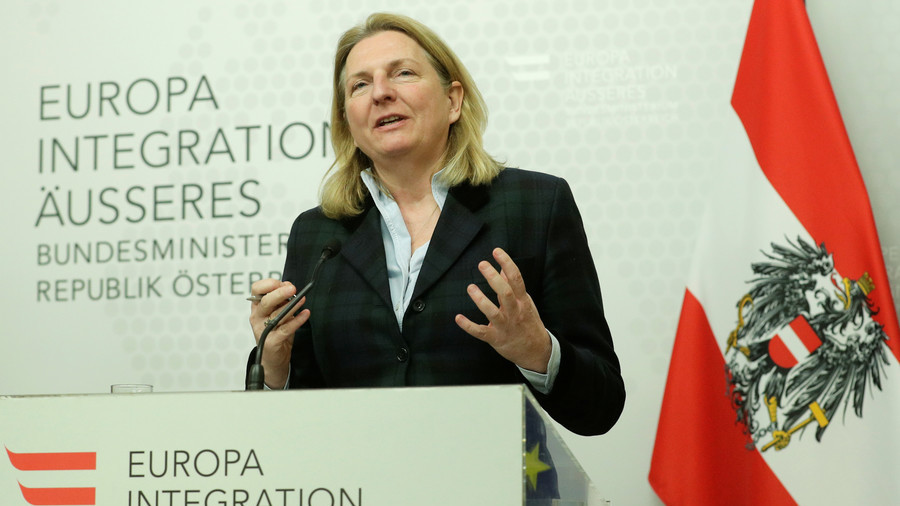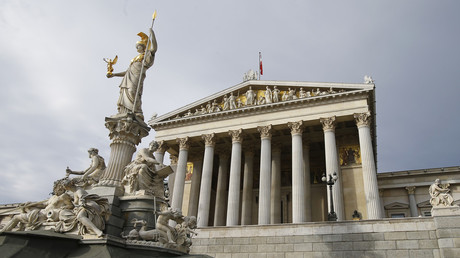No fear of reprisal, but need for dialogue: Austria on not expelling Russian diplomats

Vienna refused to expel Russian diplomats not because it feared reprisal, but because it stands for open dialogue, Austria’s foreign minister said, decrying the UK’s attempts to lure the country into taking “certain measures.”
Austria refrained from expelling Russian diplomats earlier this week, in contrast to its EU neighbors, who chose to rely on the UK’s assertion that Russia was behind the poisoning of former double agent Sergei Skripal in Salisbury. Karin Kneissl, Austria’s top diplomat, said the surprise decision had nothing to do with a fear of countermeasures from Moscow.
“It never had any impact on considerations of the Foreign Ministry and communications with the chancellor,” Kneissl said on Wednesday, as quoted by Kurier newspaper. Expelling foreign diplomats is not something Vienna stands for, she added. “You have to keep channels [of communication] open, especially when things get tough.”
The comment came at a time when multiple EU states announced the coordinated expulsion of Russian diplomats from their respective capitals. Kneissl said Vienna’s abstention from the expulsion frenzy seemingly did not sit well with London.
The outgoing member of the EU made a demarche last Wednesday “in order to encourage us to take specific measures [regarding the Skripal case],” the foreign minister confirmed, adding that the UK made another demarche on Saturday. “On Monday, while I was visiting Kosovo, we had a telephone conversation with the federal chancellor about our position, which is well known,” she said.
In the midst of a diplomatic row over the Salisbury incident, Vienna has urged more communications between Russia and Western capitals. Speaking to BBC Newshour this Wednesday, Kneissl argued that expelling diplomatic agents does not help solve “the difficult situation.”
Going further, she suggested that Vienna serve as a venue for possible face-to-face talk between Russia and its Western counterparts. Austria is home to many international bodies such as the Organization for Security and Cooperation in Europe and various UN agencies, so it is “our tradition to bring people together,” Kneissl posited.
Several decades ago, in the middle of the Cold War, the then-US president John F. Kennedy and Soviet leader Nikita Khrushchev held a groundbreaking summit on Austrian soil “and it made a difference that Vienna was home to that meeting,” she recalled.
Later in the day, the Kremlin expressed support for Vienna’s proposal, saying it welcomes any format of talks between Moscow and London. “Any role or any voice is indeed required to encourage our British counterparts to show reason in this issue,” Dmitry Peskov, the Kremlin spokesman, said.
While London hailed the coordinated move by Western countries as the "largest collective expulsion of Russian intelligence officers in history,” Russia's Foreign Ministry has protested against the “unfriendly step.”
"We consider this as an unfriendly step that is not consistent with the goals and interests of establishing the underlying reasons and searching for the perpetrators of the [Skripal] incident," the Russian Foreign Ministry said in a statement on Wednesday.


0 Comments:
Post a Comment
Subscribe to Post Comments [Atom]
<< Home